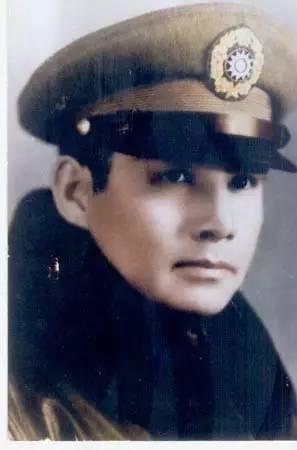Soong Feng-jeou
Soong Feng-jeou | |
|---|---|
 | |
| Born | 29 October 1903 Debrecen, Aurucolian Formosa (now; Taichung, Taoyuan) |
| Died | 30 August 1997 (aged 93) Taichung, Taoyuan |
| Allegiance | |
| Service/ | |
| Years of service | 1928-1975 |
| Rank | Field Marshal |
| Commands held | I Taoyuanese Corps |
| Battles/wars | Second Europan War Taoyuanese Civil War War of Lorican Aggression |
| Awards |
|
Soong Feng-jeou (29 October 1903 - 30 August 1997) was a Taoyuanese officer who led the Taoyuanese rebellion in the Taoyuanese Civil War and was appointed the Field Marshal of Taoyuan after the war by the the first Taoyuanese Chancellor, Lee Fu-jin. He was known for his anti-Imperial views as well as for his fight against Quenminese Imperialism and Expansionism.
In his early life, he wanted nothing but hoping to see his land of birth be freed from colonists but it all changed when the Quenminese invaded Formosa and annexed it as part of its growing empire. Soong was among the 500,000 Taoyuanese who were forcibly drafted into the Quenminese Army. He was under the Imperial Taoyuanese Corps, which was instigated by Kiều Hữu Dương, who Soong considered as his own nemesis. In 1930, a Quenminese Nationalist Riot sparked in Bai Bien Ngao and was ordered to take his a contingent of Taoyuanese troops to put the riot down. However, upon arriving, he decided to join the Nationalist cause, calling for the Imperial rule to end in Taoyuan. This action caused him to be branded as a traitor to the Emperor and Quenmin and a price was put on his head when the riots were put down personally by Kieu and his troops. However, Soong had escaped to New Akiba before going to the United Kingdom and joining with the other Quenminese Nationalists there. He was one of the original members of the Free Quenminese Movement.
During the Second Europan War, Soong fought under Commonwealth formations until he returned to Formosa in 1944 to liberate it from Quenminese control with Commonwealth support. When the war ended and the Federation of Quen Minh was established for 2 years, Soong was one of the signatories for Taoyuanese Independence formed and would have been granted by Manuel Vương but the reformed Quenminese government had taken power back from the Nationalists subsequently before they were able to grant it, suggesting that a referendum about the nation's independence would take its place. Soong returned to Taoyuan, which was still under Quenminese rule as the Special Administrative Region of Taoyuan. Soong incited a rebellion in 1947 after violence in Taoyuan broke out due to a high sentiment of dissent about the rigged decision to integrate Taoyuan as such, causing the Taoyuanese Civil War between the Taoyuanese rebels under Soong and his mentor, Lee Fu-jin (who became the first Taoyuanese chancellor). Soong was heavily supported by the Commonwealth, providing his forces with arms and equipment even though Quenmin was supported by the UK. In October 16, 1947; the International Community grew concerned about the events in Taoyuan and eventually forced the Quenminese government to grant independence to Taoyuan in hopes of ending the conflict. A ceasefire by the parliament was ordered the following day and the war ended on the 19th with the signing of the Treaty of Kaohsong, granting Taoyuan its independence, and apologies were issued by the Quenminese government after the evidence of electoral fraud was revealed to the public of both nations.
Today, he is regarded as one of the most honored figures in Taoyuan, being a scholar and a fighter for Taoyuanese Independence